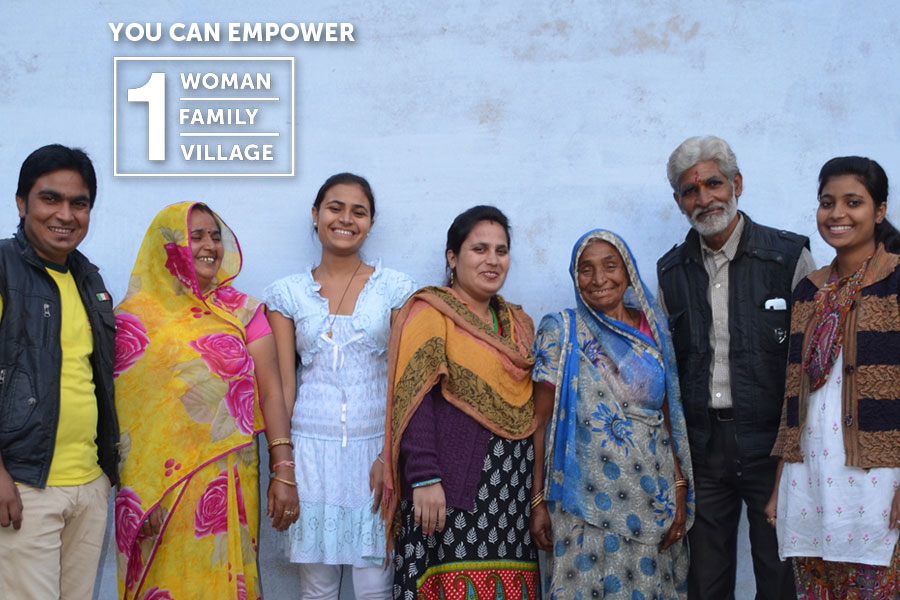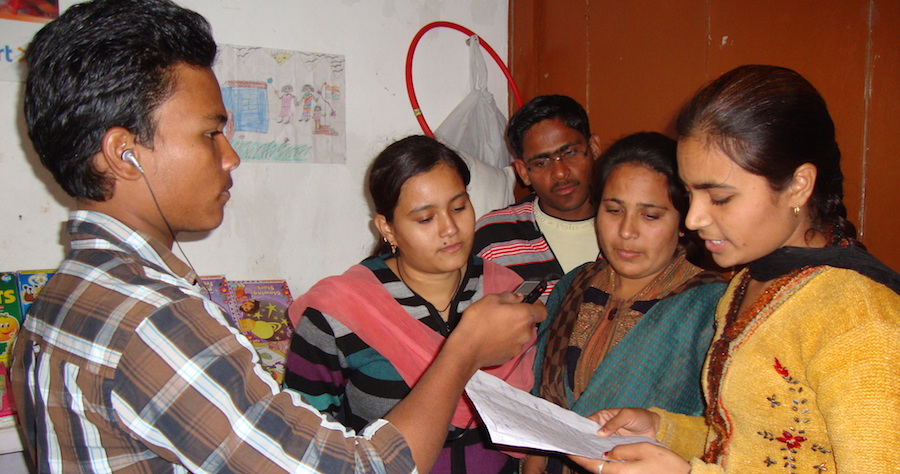 The Mudgal Family’s Story
The Mudgal Family’s Story
Om Prakash and his wife Sheela Devi raised three daughters and a son in the rural community of Geejgarh, in Rajasthan India. There were no educational resources nearby except for underfunded public schools, where books and computers were rare.
They wanted their kids to learn skills to earn a living, but the only opportunities to do so were in a town two hours away by bus. Like most parents, they were scared of sending their daughters to the city alone, because it wasn’t safe.
When we opened a READ Center in their village, the whole family was excited to join.
“It is a safe place for my daughters and wife to visit because it is close by, and it’s community owned and operated,” Om Prakash says, “The staff are like family members. Anyone can visit and see what’s going on.”
Their daughter Anuradha was the first to join the local READ Center. She took trainings in English, computer skills, and radio, where she created programs on health and women’s rights to help spread awareness in her community.
Anuradha and her mother both took sewing training. Today, they save money by sewing clothes for their family, and earn income selling clothes to their neighbours.
Their daughter Archana started an online college program, and uses the books and computers at the Center for school. After graduating, she wants to become a teacher, and she says the skills and confidence she has gained through the READ Center will help her fulfill her dream.
Their son Pankaj is applying for government jobs. He took computer training from the Center and uses the library daily to prepare for the government’s required entrance exam.
Mahima is the youngest. She participated in beautician training at the Center, and now she plans to become a makeup artist and open a beauty parlor of her own.
Om Prakash is thankful that the Center has provided each of his family members with an opportunity to learn so many skills.
“I can see a change in my children now,” he says, “Especially my daughters – they have become strong. It is important that we educate our daughters, so that they can stand on their feet and be independent.”
Anuradha says there has been a change in social norms in her community because of the Center: “Earlier, villagers were totally against letting their wives and daughters work, but now many of them have changed. They see women with respect, and they value their opinions.”




